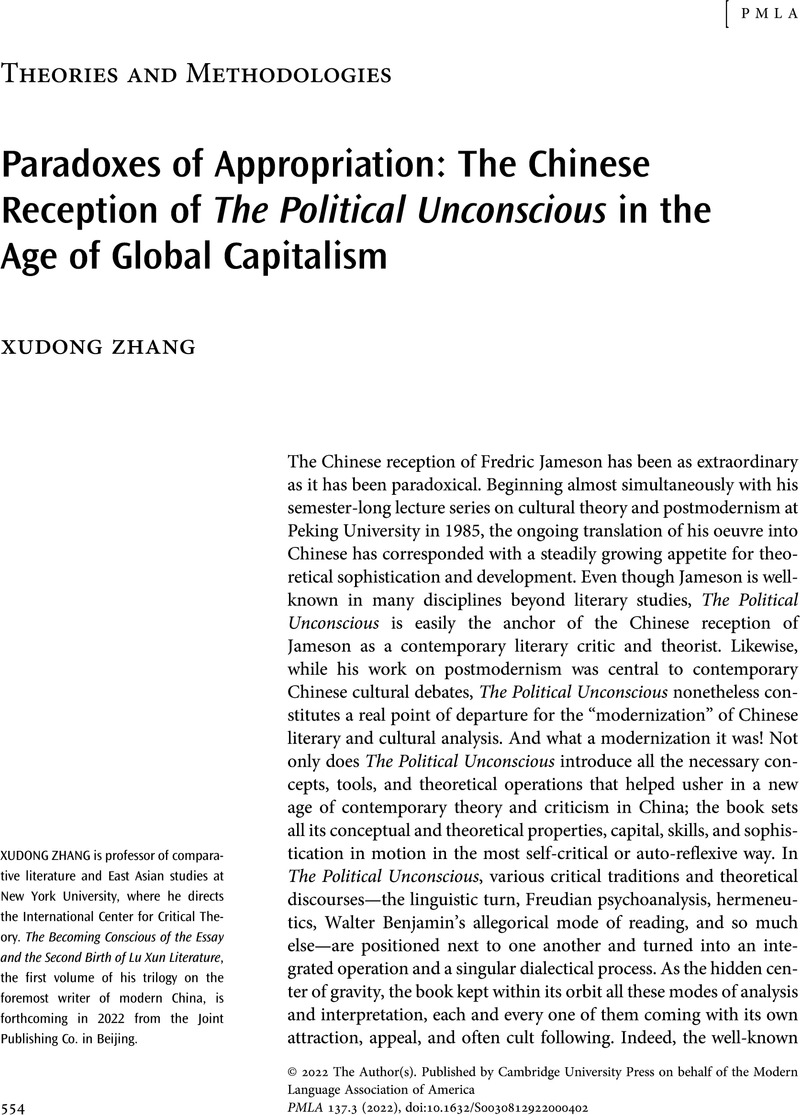No CrossRef data available.
Article contents
Paradoxes of Appropriation: The Chinese Reception of The Political Unconscious in the Age of Global Capitalism
Published online by Cambridge University Press: 28 July 2022
Abstract
An abstract is not available for this content so a preview has been provided. Please use the Get access link above for information on how to access this content.

- Type
- Theories and Methodologies
- Information
- Copyright
- Copyright © 2022 The Author(s). Published by Cambridge University Press on behalf of the Modern Language Association of America
References
Works Cited
Benjamin, Walter. “Surrealism.” Reflections: Essays, Aphorisms, Autobiographical Writings, translated by Jephcott, Edmund, edited by Demetz, Peter, Schocken Books, 1978, pp. 177–92.Google Scholar
Husserl, Edmund. The Crisis of European Sciences and Transcendental Phenomenology: An Introduction to Phenomenological Philosophy. Translated by Carr, David, Northwestern UP, 1970.Google Scholar
Jameson, Fredric. The Political Unconscious: Narrative as a Socially Symbolic Act. Cornell UP, 1981.Google Scholar
Jameson, Fredric. “Postmodernism; or, The Cultural Logic of Late Capitalism.” New Left Review, no. 146, July-Aug. 1984, pp. 59–92.Google Scholar
Ricoeur, Paul. Hermeneutics and Human Sciences. Edited and translated by Thompson, John B., Cambridge UP, 2016.10.1017/CBO9781316534984CrossRefGoogle Scholar
Rorty, Richard. Achieving Our Country—Leftist Thought in Twentieth-Century America. Harvard UP, 1998.Google Scholar
Wang, Jing. High Culture Fever: Politics, Aesthetics, and Ideology in Deng's China. U of California P, 1996.CrossRefGoogle Scholar
Wang, Qin. “Jameson's ‘National Allegory’: A Defense.” Studies in Literary and Art Theory, no. 4, 2014, pp. 211–16.Google Scholar
Žižek, Slavoj. “The Spectre of Ideology.” Mapping Ideology, edited by Žižek, Verso, 1994, pp. 1–33.Google Scholar


